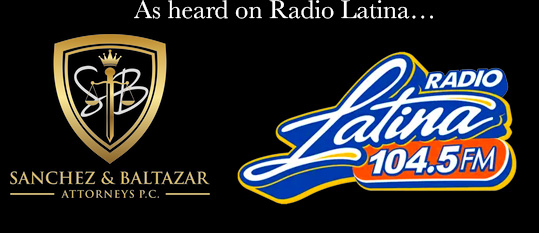After years of creditor harassment for payments, our attorneys not only stopped the harassment but forced the creditor to pay for Debtor’s attorney fees.
Defending Your Rights.
Call, text, email, or chat. We answer 24/7 for emergencies.
Quick Links
All rights reserved 2022. S&B Legal.
We provide legal assistance to those who are facing criminal charges. While this website provides valuable information, this is not intended to be legal advice. Moreover, your review of the website content or your use of the contact forms or email options features on this site will not establish an attorney-client relationship between you and Sanchez & Baltazar Attorneys. This site is legal advertising.
Web Services by Digital Concept Marketing.

